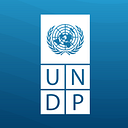Human Rights lie at the core of UNDP’s work and its support to reform and recovery in Ukraine
What do Ukrainians understand as human rights, and how did their understanding change in Ukraine since the start of the armed conflict in 2014? Ukrlife.tv, an independent Ukrainian online broadcaster, interviewed Marcus Brand, Democratic Governance Advisor for the United Nations Development Programme (UNDP), for the two-day TV marathon produced on the occasion of Human Rights Day 2017. Human Rights Day is observed every year on 10 December, to mark the adoption, in 1948, of the Universal Declaration of Human Rights.
In the interview, Marcus Brand points out state responsibilities in implementing non-discriminatory programs and policies. These include responsibilities of the Ukrainian Parliament Commissioner for Human Rights (or Ombudsperson), with a mandate to protect human rights by acting as a mediator between state institutions and civil society, as well as the Parliament, accountable for adopting legislation that is not discriminatory.
The United Nations Development Program, in Ukraine for the last 25 years, since the Maidan events and the start of the conflict has gradually shifted its focus on institutional reforms, with a strong emphasis on achieving the Sustainable Development Goals approved globally in 2015, and helping the recovery effort in Donetsk and Luhansk oblasts. It is indeed the armed conflict in the east that is currently associated with the biggest human rights crisis in the country, affecting the whole range of rights, from economic and social to the right for life.
This was also underlined during the recent Universal Periodic Review, a process where a country’s record on human rights is reviewed by the international community. Ukraine underwent such a review in November 2017. Another important issue was raised repeatedly during the review: domestic violence and violence against women.
The recommendation for Ukraine is to ratify and implement the Council of Europe Convention on Preventing and Combating Violence Against Women and Domestic Violence (Istanbul Convention). Too many protection provisions, which could help those experiencing domestic violence, are still missing in Ukraine.
Programs aimed at rural communities have a role to play too, says Brand, to ensure no one is left behind in terms of basic human rights.
“When we offer support for neglected, marginalized rural areas in terms of economic development, we make sure that everybody in the community is included, that there are no discriminations, and the programs we carry out lead to the improvement of the living situation, especially for those who are disadvantaged”.
Brand emphasizes the principle of inclusion in the relationship of citizens and their local authorities. All citizens should have the possibility to approach officials, address their issues, and be provided with justice. Civil society plays also an important part to advocate for human rights, share information and help people get access to institutions, which can help them exercise their rights.
The interview with Marcus Brand was produced by Ukrlife.tv, an independent online broadcaster.
